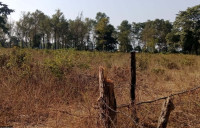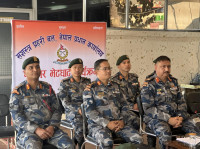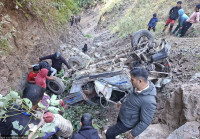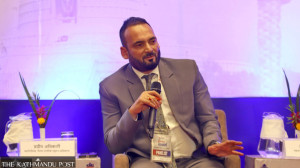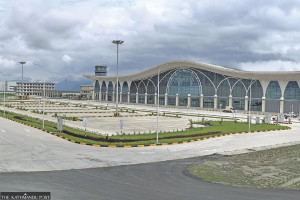National
Shortlisted nominees for six vice-chancellor posts are close to the ruling party
If political association were to have primacy over merit, what was the point of announcing vacancies, experts ask.Binod Ghimire
When the search committees formed to select the vice-chancellor candidates for six universities called for the resumes from the aspirants, they had claimed that the candidates would be picked on merit basis unlike in the past.
But, after sifting through the resumes submitted by 250 professors and academicians, the committees have shortlisted 178 eligible candidates, a majority of whom are associated with professors association of the ruling Nepal Communist Party.
The government had formed six search committees, led by Education Minister Giriraj Mani Pokharel and National Planning Commission’s member Usha Jha, to pick the vice-chancellor candidates.
The search committees for two universities have already submitted their recommendations to Prime Minister KP Sharma Oli. The other four committees have finalised the names but are yet to file the list.
Oli, in the capacity of ex-office chancellor of the university, has the authority to select one candidate from among the three names recommended for each university.
The officials at the secretariat of Jha said she, on Sunday, had recommended the three names each for Far-Western and Mid-Western Universities.
Ramesh Bhattarai, Bharati Chand and Purna Bahadur Chand have been recommended for the Far-Western University. Bhattarai, close to the Maoist faction within the NCP, is joint-coordinator of Nepal Progressive Professors Association affiliated to the ruling party. Purna Bahadur is the acting vice-chancellor of the university while Bharati is a professor there. Both Purna Bahadur and Bharati are active members of the association.
Ammar Raj Joshi, former chief of the Department of English at Tribhuvan University, had also submitted his resume, but he didn’t find the space in the final list. Joshi is close to Nepal Democratic Professors Association, which is affiliated to the Nepali Congress. According to sources at the Ministry of Education Janardan Lamichhane, Keshar Singh Rana and Nanda Kumar Singh, all close to the NCP, made it in the final list for the vice-chancellor’s post at the Mid-Western University.
Though other four search committees, led by Pokharel, have finalised the names for other four varsities, they are yet to submit the list to Oli.
“We have had intense discussions over the names; however, I don’t think the lists have been submitted yet,” Bhim Subedi, chairman of the University Grants Commission, who is a member of the search committees, told the Post.
The Pokharel-led committee has finalised the names of Sharada Thapaliya, Punya Regmi and Bishnu Hari Pandit for the Agriculture and Forestry University. Thapaliya is serving as an acting vice-chancellor at the university following the retirement of the previous incumbent in August. Regmi is vice-chairman of the planning commission in Karnali Province while Pandit is a university professor. All three are close either to the Maoist or the UML faction of the ruling party.
Though Surya Kant Ghimire, who played an active role in forming the university and served as the registrar in the past, was one of the aspirants for the position, he didn’t find a place in the recommendation list.
“The government has fully ignored us while selecting the names for the vice-chancellors. There were many senior and capable professors who were aspirants to lead the universities, but they were ignored because they were not close to the ruling party,” Jagat Timilsina, chairman of the democratic professors association, told the Post.
According to a professor close to the NCP, who is one of the nominees for the vice-chancellor, said the differences among Oli and Pokharel over the names in Pokhara University has affected the appointment process. He said Pokharel, who represents the former Maoist, wants Dev Raj Adhikari, member-secretary at University Grants Commission, to lead the university. However, Oli wants Yadav Prasad Lamichhane, coordinator of Nepal Progressive Professors Association, in that position.
“The road for the appointment will open once the differences are settled,” he said on the condition of anonymity because he was not allowed to talk on the matter.
Education experts say it was unnecessary to waste time in collecting the resumes if the political association were to have primacy over merit in getting the appointments.
Ever since the second people's movement in 2006, appointments in varsities have been made on the basis of political sharing, with the party in the government appointing people close to it in top positions.
“The government had an opportunity to end politicisation in universities but it has failed,” Binay Kusiyait, a professor at the Tribhuvan University, told the Post.




 8.12°C Kathmandu
8.12°C Kathmandu
